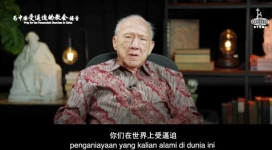Same-sex advocates filed a lawsuit on August 6 to argue that the same-marriage ban placed on Louisiana’s ballot this Sept. was illegally approved by the Legislature although opponents believe it’s a desperate attempt to stop the vote after Missouri’s landslide vote to pass a similar legislation last week.
The case will be heard on Tuesday morning at 9 a.m. in New Orleans Civil District Court.
If approved, the language of the measure that would be amended to the Louisiana’s Constitution is:
"No official or court of the state of Louisiana shall construe this constitution or any state law to require that marriage or the legal incidents thereof be conferred upon any member of a union other than the union of one man and one woman. A legal status identical or substantially similar to that of marriage for unmarried individuals shall not be valid or recognized. No official or court of the state of Louisiana shall recognize any marriage contracted in any other jurisdiction which is not the union of one man and one woman."
According to Randy Evans, the attorney representing plaintiffs in the case, the amendment includes language that would ban civil unions and benefits for domestic partnerships, thereby making the legislation illegal because the state’s constitution does not allow legislations to be “multiple objective.”
State Sen. John Hainkel, R-New Orleans, who sponsored the amendment with Rep. Steve Scalise, R-Metairie, disagreed, saying that the amendment would not affect private contracts between individuals, nor would it prohibit private companies from extending insurance or other benefits to employees' same-sex partners.
Hainkel called the claims “silly.”
"I would assume it is a final act of folks that are very very desperate in reaction to the whipping they got in Missouri," Hainkel said.







